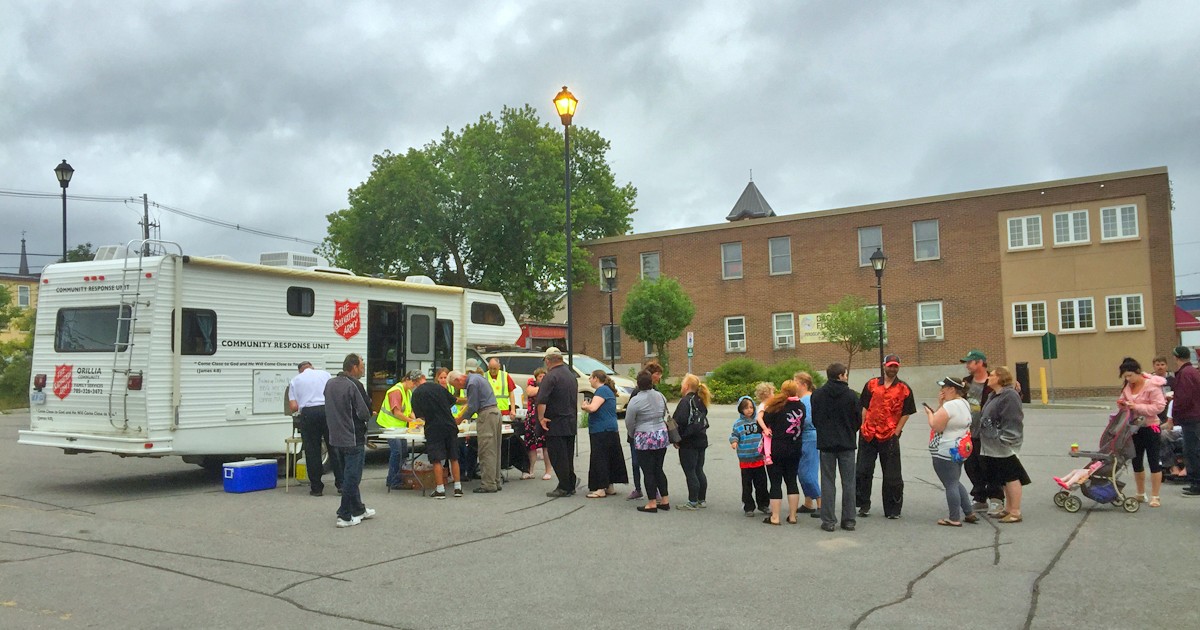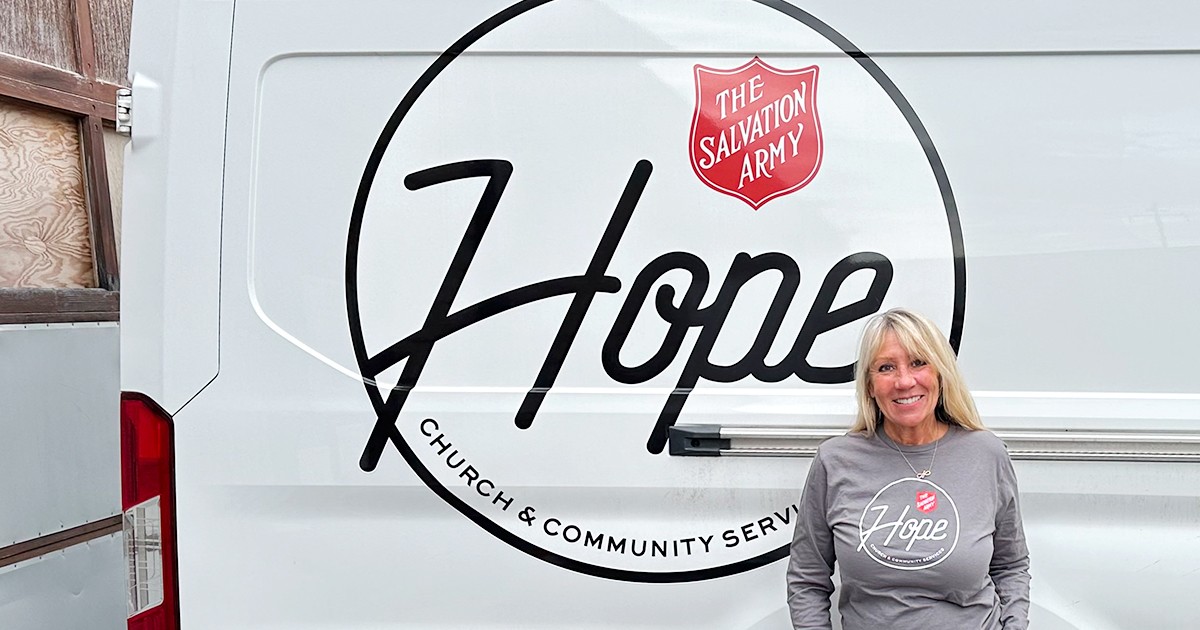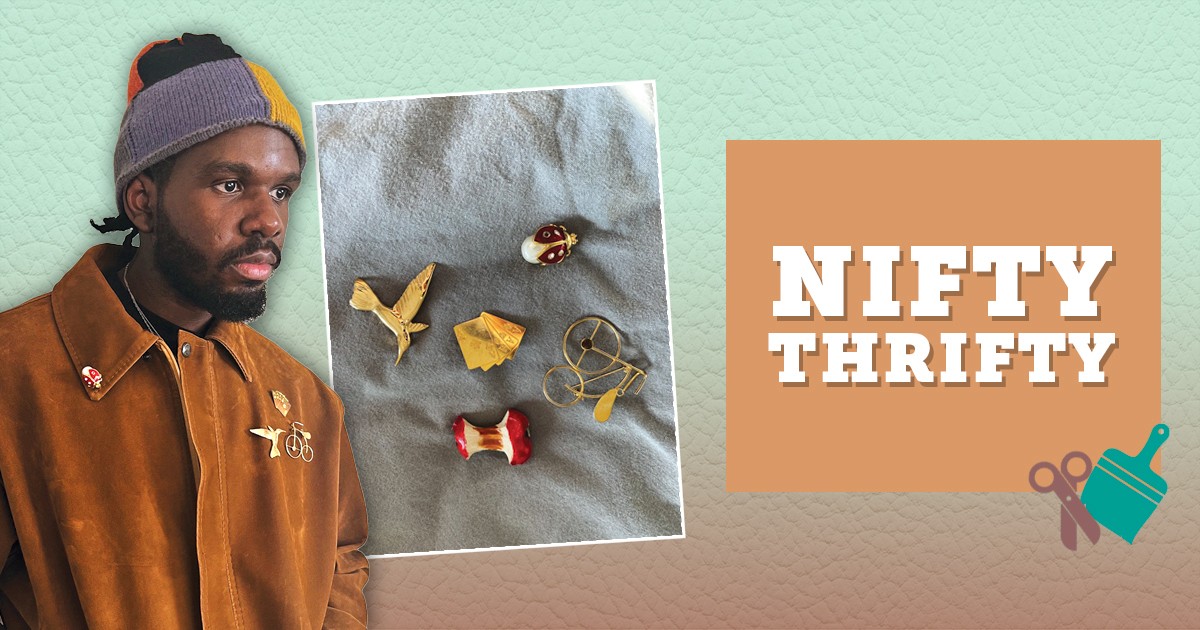Jesus teaches that we are called to serve those in need with love. How should we serve refugees—people who seem so unlike us? At first glance, it’s hard to see what we have in common. They may speak a different language, eat strange food and have unfamiliar customs. How can we show love they will understand?
One easy way is to offer practical assistance. When violence, war or disaster forces people to flee their homes and countries, they bring little with them. Some of the refugees I have met at Montreal Citadel came to Canada with nothing more than a suitcase—and some with only the clothes on their backs. Many of us have more than we need. We can help by sharing from our abundance.
Along with providing material things, we can show genuine interest in refugees as people. Community and family services workers tell me that often what people want most is someone to listen to their story. When they realize we understand they have reasons for not being able to provide adequately for their families at this time, and that asking for practical help doesn’t mean they can’t contribute to the community, dignity returns.
One impediment for newcomers is their inability to communicate. Government programs provide language learning so newcomers can integrate and find employment. This is also an entry point for the church. We demonstrate welcome and acceptance in offering language conversation programs, along with a place for social interaction. At the same time, participants can get a closer look at our faith lived out.
We, too, benefit from these conversations in learning about life in another part of the world. And if, eventually, they honour us with enough trust to tell their story, we must listen with empathy, patience and respect.
In Canada, even moving to another part of the country presents a great challenge. Can you imagine how frightening it must be when you must ask for access to a country, having left everything behind, and staking your future on the hope you will be admitted? This is the lot of a refugee. They face not only legal and bureaucratic barriers, but social stigma from not knowing the local culture as well.
Here again we can offer genuine friendship. At our corps, we try to create a welcoming place for everyone. Sometimes it’s difficult to sort out the complications of operating in the three different languages of the largest minorities in the congregation. Other, smaller language groups can feel unappreciated. Misunderstanding happens so easily. Grace must permeate our activities.
With acceptance, contributions of new members are integrated. While teaching the nursery class at Montreal Citadel, I learned from a fellow teacher who came from India the value of using YouTube videos to help the children learn songs.
What should our response to refugees be? We need to see them as grace-gifts from God. We can make this a better country together, as we learn to accept and appreciate differences and share the riches of our cultures with each other.
Colonel Eleanor Shepherd is a retired Salvation Army officer and the author of More Questions Than Answers: Sharing Faith by Listening.
Feature photo: © FatCamera/iStock.com
One easy way is to offer practical assistance. When violence, war or disaster forces people to flee their homes and countries, they bring little with them. Some of the refugees I have met at Montreal Citadel came to Canada with nothing more than a suitcase—and some with only the clothes on their backs. Many of us have more than we need. We can help by sharing from our abundance.
Along with providing material things, we can show genuine interest in refugees as people. Community and family services workers tell me that often what people want most is someone to listen to their story. When they realize we understand they have reasons for not being able to provide adequately for their families at this time, and that asking for practical help doesn’t mean they can’t contribute to the community, dignity returns.
One impediment for newcomers is their inability to communicate. Government programs provide language learning so newcomers can integrate and find employment. This is also an entry point for the church. We demonstrate welcome and acceptance in offering language conversation programs, along with a place for social interaction. At the same time, participants can get a closer look at our faith lived out.
Often what people want most is someone to listen to their story.So what do we talk about? Having lived in Europe for eight years, we discovered that living in another culture greatly influences your identity. Assumptions about ways of doing things are shattered. This must be even more destabilizing when the change of country has followed a crisis. Many refugees have gone through traumatic experiences, and questions about it may bring up painful memories. What might be comforting is to steer conversations toward good memories of where they were born, of childhood friends and their family of origin.
We, too, benefit from these conversations in learning about life in another part of the world. And if, eventually, they honour us with enough trust to tell their story, we must listen with empathy, patience and respect.
In Canada, even moving to another part of the country presents a great challenge. Can you imagine how frightening it must be when you must ask for access to a country, having left everything behind, and staking your future on the hope you will be admitted? This is the lot of a refugee. They face not only legal and bureaucratic barriers, but social stigma from not knowing the local culture as well.
Here again we can offer genuine friendship. At our corps, we try to create a welcoming place for everyone. Sometimes it’s difficult to sort out the complications of operating in the three different languages of the largest minorities in the congregation. Other, smaller language groups can feel unappreciated. Misunderstanding happens so easily. Grace must permeate our activities.
With acceptance, contributions of new members are integrated. While teaching the nursery class at Montreal Citadel, I learned from a fellow teacher who came from India the value of using YouTube videos to help the children learn songs.
What should our response to refugees be? We need to see them as grace-gifts from God. We can make this a better country together, as we learn to accept and appreciate differences and share the riches of our cultures with each other.
Colonel Eleanor Shepherd is a retired Salvation Army officer and the author of More Questions Than Answers: Sharing Faith by Listening.
Feature photo: © FatCamera/iStock.com










Leave a Comment